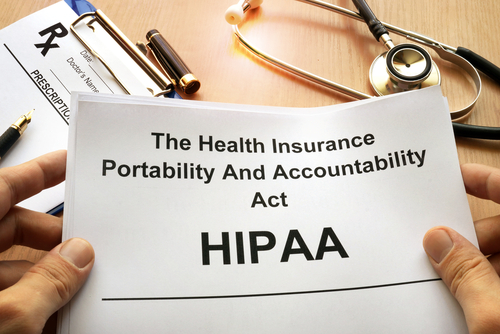Recent blog posts
 Absolutely not. An IDFPR investigator is a civilian investigator who possesses no police powers. Even if it was a local police officer who demanded that you immediately stop your clinic or office activities and submit to an interview, you are not required to submit. In the police officer scenario, you have an absolute constitutional right to not speak to any police official. The same is true for an IDFPR investigator. A civilian investigator may try to intimidate you into answering questions, but our strong…
Absolutely not. An IDFPR investigator is a civilian investigator who possesses no police powers. Even if it was a local police officer who demanded that you immediately stop your clinic or office activities and submit to an interview, you are not required to submit. In the police officer scenario, you have an absolute constitutional right to not speak to any police official. The same is true for an IDFPR investigator. A civilian investigator may try to intimidate you into answering questions, but our strong…  We tell all young professionals just starting out that eventually, they should incorporate. However, the Illinois Veterinary Medicine and Surgery Practice Act of 2004 (“Vet Act”) specifically permits a veterinarian to practice as an individual (the IRS calls this a sole proprietorship). Because there is no registration requirement for a sole proprietor with the Secretary of State and accordingly no registration fees, as well as streamlined tax reporting to the IRS, it might be tempting to see this route as the easiest when one…
We tell all young professionals just starting out that eventually, they should incorporate. However, the Illinois Veterinary Medicine and Surgery Practice Act of 2004 (“Vet Act”) specifically permits a veterinarian to practice as an individual (the IRS calls this a sole proprietorship). Because there is no registration requirement for a sole proprietor with the Secretary of State and accordingly no registration fees, as well as streamlined tax reporting to the IRS, it might be tempting to see this route as the easiest when one…  After spending 20 years in school and countless hours studying, who doesn’t want to go straight into a job working 60-80 hours a week? Most doctors don’t go into medicine for the money, they go into it because they have a passion for helping people, but at what point is it too much? Depending on your specialty, you could be working these long weeks for 7+ years after receiving your medical or osteopathic degree and even further into an attending position; so how…
After spending 20 years in school and countless hours studying, who doesn’t want to go straight into a job working 60-80 hours a week? Most doctors don’t go into medicine for the money, they go into it because they have a passion for helping people, but at what point is it too much? Depending on your specialty, you could be working these long weeks for 7+ years after receiving your medical or osteopathic degree and even further into an attending position; so how…  You’ve received a scary Deficiency Notice from the IDFPR, accusing you of some type of unethical or unprofessional misconduct. You felt the clutching fear in your stomach and chest when you realized that a big impersonal government agency is coming after you and the license you worked so hard to earn.
You fear you may be torn from your patients and the profession you care so much about. What will you do? How will you pay your bills? It’s crushing.
Common IDFPR allegations…
You’ve received a scary Deficiency Notice from the IDFPR, accusing you of some type of unethical or unprofessional misconduct. You felt the clutching fear in your stomach and chest when you realized that a big impersonal government agency is coming after you and the license you worked so hard to earn.
You fear you may be torn from your patients and the profession you care so much about. What will you do? How will you pay your bills? It’s crushing.
Common IDFPR allegations…  You’ve received a scary Deficiency Notice from the IDFPR, accusing you of some type of unethical or unprofessional misconduct. You felt the clutching fear in your stomach and chest when you realized that a big impersonal government agency is coming after you and the license you worked so hard to earn.
You fear you may be torn from your patients and the profession you care so much about. What will you do? How will you pay…
You’ve received a scary Deficiency Notice from the IDFPR, accusing you of some type of unethical or unprofessional misconduct. You felt the clutching fear in your stomach and chest when you realized that a big impersonal government agency is coming after you and the license you worked so hard to earn.
You fear you may be torn from your patients and the profession you care so much about. What will you do? How will you pay…  Pharmacy audits are a common practice in healthcare. These audits include a comprehensive review of a pharmacy’s records, practices, and procedures to determine whether it is in compliance with relevant laws and regulations, as well as to identify any potential areas of risk.
Pharmacy audits can be conducted by government agencies, private insurers, pharmacy benefit managers (PBMs), and third-party auditors. The process itself involves examining the pharmacy’s records, including prescription records, billing records, dispensing records, and inventory records, as well as an…
Pharmacy audits are a common practice in healthcare. These audits include a comprehensive review of a pharmacy’s records, practices, and procedures to determine whether it is in compliance with relevant laws and regulations, as well as to identify any potential areas of risk.
Pharmacy audits can be conducted by government agencies, private insurers, pharmacy benefit managers (PBMs), and third-party auditors. The process itself involves examining the pharmacy’s records, including prescription records, billing records, dispensing records, and inventory records, as well as an…  The high rate of burnout for medical professionals hit extraordinary numbers during the COVID-19 pandemic. While available treatments, availability of personal protective equipment (PPE), and workloads have all improved since the height of the pandemic, there are still many challenges the medical community continues to deal with. Physician burnout has long been an issue, but the pandemic intensified the issue.
Unfortunately, this burnout can sometimes lead to errors – that ultimately lead to action taken against the physician’s medical license.
How Prevalent Is…
The high rate of burnout for medical professionals hit extraordinary numbers during the COVID-19 pandemic. While available treatments, availability of personal protective equipment (PPE), and workloads have all improved since the height of the pandemic, there are still many challenges the medical community continues to deal with. Physician burnout has long been an issue, but the pandemic intensified the issue.
Unfortunately, this burnout can sometimes lead to errors – that ultimately lead to action taken against the physician’s medical license.
How Prevalent Is…  Every licensed medical professional is entrusted with extremely confidential information about their patients. Under the Health Insurance Portability and Accountability Act (HIPAA), not only are they required to not share this information themselves, but they are also required to make sure that all patient information is protected from unauthorized access. Doctors, nurses, and other healthcare professionals are only supposed to access a patient’s medical record if they have a valid reason to do so. Any type of breach of this duty…
Every licensed medical professional is entrusted with extremely confidential information about their patients. Under the Health Insurance Portability and Accountability Act (HIPAA), not only are they required to not share this information themselves, but they are also required to make sure that all patient information is protected from unauthorized access. Doctors, nurses, and other healthcare professionals are only supposed to access a patient’s medical record if they have a valid reason to do so. Any type of breach of this duty…  There is no doubt that the COVID-19 vaccine has stirred up great controversy, especially when it comes to mandatory vaccination policies that many companies and organizations have put in place. Regardless of which side of the fence a person sits on, it is important for every medical professional to realize that they are held to higher standards than the general public. A Wisconsin physician who recently had his medical license suspended for falsifying vaccine records is a good example of what…
There is no doubt that the COVID-19 vaccine has stirred up great controversy, especially when it comes to mandatory vaccination policies that many companies and organizations have put in place. Regardless of which side of the fence a person sits on, it is important for every medical professional to realize that they are held to higher standards than the general public. A Wisconsin physician who recently had his medical license suspended for falsifying vaccine records is a good example of what…  Several labor and delivery nurses were recently fired from a Georgia hospital after a TikTok video they posted criticizing patients went viral. This incident is just one example that demonstrates how critical it is for licensed medical professionals to watch what they post on social media because those posts could have far-reaching consequences for their careers.
Labor and Delivery “Icks”
The four nurses put together the video – which was viewed more than 100,000 times before it was taken down – a part…
Several labor and delivery nurses were recently fired from a Georgia hospital after a TikTok video they posted criticizing patients went viral. This incident is just one example that demonstrates how critical it is for licensed medical professionals to watch what they post on social media because those posts could have far-reaching consequences for their careers.
Labor and Delivery “Icks”
The four nurses put together the video – which was viewed more than 100,000 times before it was taken down – a part… RECENT BLOG POSTS
- Does an Illinois Physician Have to Submit to Questioning by an IDFPR Investigator?
- Do Illinois Veterinarians Need to Incorporate as a Professional Services Corporation?
- Avoiding Burnout During Residency in Illinois
- The Top 10 Things Nurses Can Expect During an IDFPR Disciplinary Hearing
- The Top 10 Things Chiropractors Can Expect During an IDFPR Disciplinary Hearing
CATEGORIES
Sign Up for Our Newsletter
We send periodic email newsletters about dates of courses and seminars, trends in the law, significant cases, IDFPR cases and court summaries.
